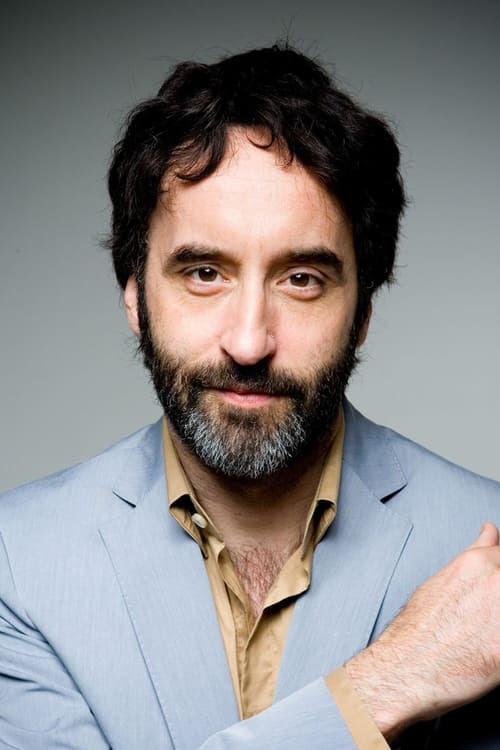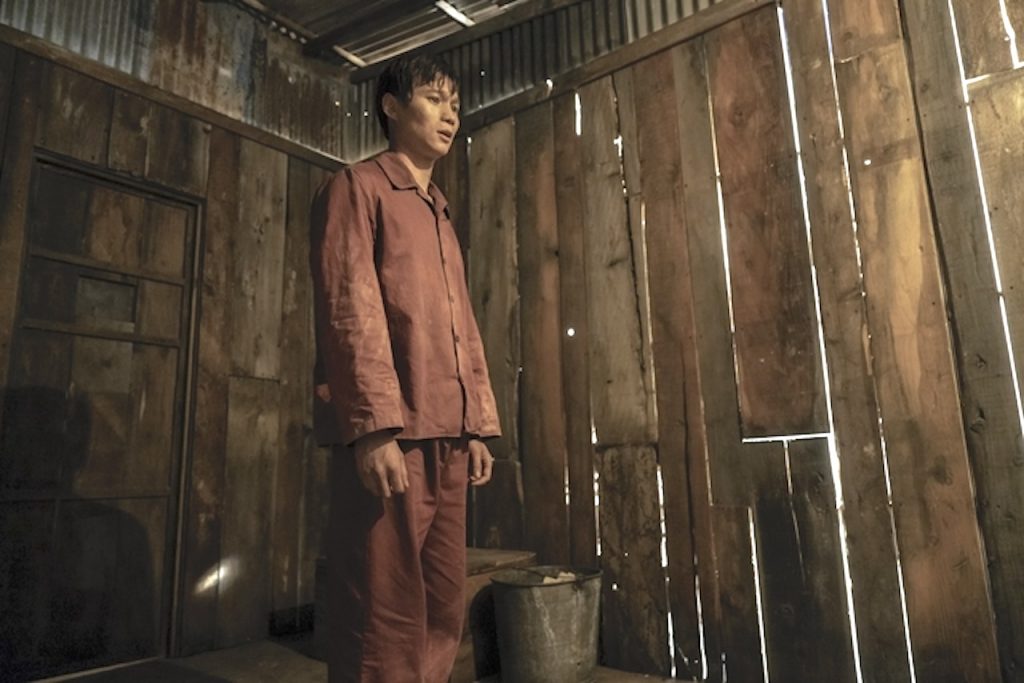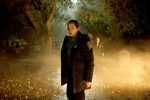“Keep the Viewer Unsettled” Don McKellar on ‘The Sympathizer’

“There was David Cronenberg (The Fly, Scanners), but not many other examples,” says Don McKellar, about his childhood as a Canadian where he felt there were few role models in the business. “But I did love theater. I created shows with my friends and all the disciplines — writing, directing, acting — blended together for me.”
Those live performances helped to shape his work. “I co-wrote a musical called The Drowsy Chaperone on Broadway. In that kind of show, if you do it and it doesn’t work, it’s obvious. What helps as a writer, is having that actor’s eye ingrained in my bones. You can sort of feel what works, what can play, what’s enjoyable to deliver. That instinct really informs my writing.”
“Knowing what actors will enjoy is consequently knowing what viewers will enjoy. I think that helped me work with Robert,” he jokes, in regards to the new series The Sympathizer, which stars Robert Downey Jr., Sandra Oh, and Hoa Xuande.
McKellar met Park Chan-wook (Oldboy) on another project that was never made, but they “naturally shared taste” and liked “odd stuff.” McKellar adds, “We liked getting reactions out of viewers, so we worked together well. Even though he doesn’t speak English perfectly, it’s like we could finish each other’s sentences.”

Photo by Sebastien Dolidon
This collaboration, combined with the fact that author Viet Thanh Nguyen said Park Chan-wook was one of the inspirations for the book by the same name, made McKellar and Chan-wook the ultimate co-showrunner team for the series.
Adapting The Sympathizer
McKellar says there’s not a one-size-fits all approach to adapting a book, since every book and every series/ film is different, but for this project, with a Pulitzer Prize winning book, it was relatively straightforward and action-packed.
“[The author is] telling a story. He wants to entertain. It’s intelligent. There’s a dialectic play of ideas. It also plays with genre. The character himself — it’s told in first person — loves American pop culture and movies. So it allows you to embrace that said and play to the genre conventions, to be playful about storytelling.”
In an effort to surprise themselves, it developed somewhat naturally. McKellar broke down the arc over eight episodes and then realized “six and seven felt like filler.” Coming to a similar conclusion as Melanie Marnich (Apples Never Fall), seven strong episodes felt better than eight episodes with some filler.
“You have to just fill that out. I knew I wanted it to be dense, but also fast. I wanted multiple, competing storytelling devices and I wanted that complexity. So, it couldn’t allow for filler. It wasn’t subjective — it had to be tight. And working with Director Park, it had to be economical and not repeated.”
Explaining The History Of The Vietnam War
In some ways, with a story like this that shows the other side of the Vietnam War, some things have to be explained to the audience, at least on a basic level. “There’s a lot of history and I realized in the beginning, I’m never going to explain the Vietnam War, because it’s almost impossible to explain. The more you explain, the more questions that arise.”
“It was a problematic war in the first place, which is why people protested. It’s not easy to lay out the framework in a digestible way. But, in the room, I remember saying to HBO when they would ask about military terms that were confusing, it was sort of like a medical show. We don’t know specifically what they’re saying, but they’re discussing a problem and using the tools of the trade. Military is like that and history is like that.”
“The fundamental history, what people needed to appreciate the show and get into it, is really very little. The reason for that, depressingly, is that the next fifty years of war and American Foreign Policy lessons have been similar, war after war. The failures have been similar. Viewers know more than they think — they absorb a lot.”

Claude (Robert Downey Jr.) Photo by Hopper Stone/ HBO
“The good thing about this is that we had a guy on set who knew that Army. There’s still people around and we had living history to talk to, in the room. Historically, you just have to get the best researchers possible.” As for working with researchers, most of the work had been done in the novel.
“He was involved all the way through, so I could ask questions, like ‘Did any bombs fall three days before [X event]… when I needed something historically. But it goes both ways. I read lots of great memoirs and academic things about refugees. There’s a huge amount of material out there. Sometimes you use it to bolster what you have already written. In other ways, you’re inspired to come up with something.”
One actor on set remembered all of the American Wonder Bread that came over during the war, so that was a wonderful detail that came from the cast. “They were an incredible resource, not just in acting skills, but in memories and family history.”
Automatic Tension
The tagline, “Refugee. Traitor. Hero. Spy.,” is the type that when packed into a single character — Hoa Xuande’s The Captain — creates automatic tension. “In a spy story, tension is key. We wanted to keep the espionage genre elements in.”
“What it really is, is keeping the viewer unsettled. With a spy thing, it’s an identity question (as Christopher McQuarrie discussed with us for Fallout). Will he be found out? With the Captain, the whole spy question and genre has been internalized, so he has that conflict within himself. It was a real gift. We didn’t have to build artificial constructions on the outside. We allowed the writers to go inside and fight those battles in his own conflicting sides. It’s his curse.”
This “duality of character” made the spy story not be so mechanical. “It was a character issue.” This helped the storyline, which was an attempt to flip what Americans knew about the war, at least in terms of how the Vietnam War has been historically played out in other films and series.

The Captain (Hua Xande) Photo by Hopper Stone/ HBO
“The book is consciously saying, ‘Well let’s look at this from the other side.’ That was a real motivation while writing. It was a tool we had. So then it’s like, ‘What’s the other side of that? Then again, what’s the other side of that? As every perspective has two sides.’”
In a project like this, it’s perhaps simpler to highlight questions than try to provide answers. “In the book and in the series, it’s very hard to pin down exactly what [the author’s] politics are, because he’s satirical in every direction. The show is really about the dialectic. It’s like saying these two sides exist and the only way to reconcile them is through a synthesis — showing both sides honestly — and hopefully that forces honesty and objectivity.”
“We didn’t want to provide answers, just to show a perspective for viewers to make their own answers. The Captain is an anti-hero and a hero, but it depends which side of the war you are in. He genuinely is both, so it’s trite to say this side is right and this side is wrong. “
Running a Show
“I did learn from Chan-wook that he is always open to a new, smart idea. He’s almost frustratingly open to a good new idea. I tried to be open to most ideas, but I knew there were things we would never compromise on. Some plot things. We would never have Vietnamese people not speaking Vietnamese, for example.”
After they wrapped the show, he received an interesting compliment from HBO. “They said, ‘Thanks for explaining things to us. Often, writers don’t explain things.’ I was worried I was just defensively justifying everything we’d written, but I do think writers are afraid to be open about reasons and motivations. Often, when you explain, you also explain to yourself what’s important and what you’re going to hold onto.”
As for collaboration and working with others, McKellar says, “That’s everything. In my career, and for most people, it’s all about collaborating, certainly that’s what showrunning is. Some people have the opposite opinion, that’s it’s this commanding auteur-ish dictator, but it’s collaboration and you have to enjoy that. A lot of people don’t enjoy that. But that’s what it is.”
“But, back to those kids who I formed a theater company with, we stuck together, even won Tonys together, and I enjoyed working with them. It’s not just pleasure. I feed off of that. There were moments when I thought, ‘Yes, this is a total Park Chan-wook idea.’ It’s those moments, when you get pleasure bringing out the best in others, that’s the job.”
This interview has been condensed. Listen to the full audio version here.
Join the Discussion!
Related Articles
Browse our Videos for Sale
[woocommerce_products_carousel_all_in_one template="compact.css" all_items="88" show_only="id" products="" ordering="random" categories="115" tags="" show_title="false" show_description="false" allow_shortcodes="false" show_price="false" show_category="false" show_tags="false" show_add_to_cart_button="false" show_more_button="false" show_more_items_button="false" show_featured_image="true" image_source="thumbnail" image_height="100" image_width="100" items_to_show_mobiles="3" items_to_show_tablets="6" items_to_show="6" slide_by="1" margin="0" loop="true" stop_on_hover="true" auto_play="true" auto_play_timeout="1200" auto_play_speed="1600" nav="false" nav_speed="800" dots="false" dots_speed="800" lazy_load="false" mouse_drag="true" mouse_wheel="true" touch_drag="true" easing="linear" auto_height="true"]










You must be logged in to post a comment Login